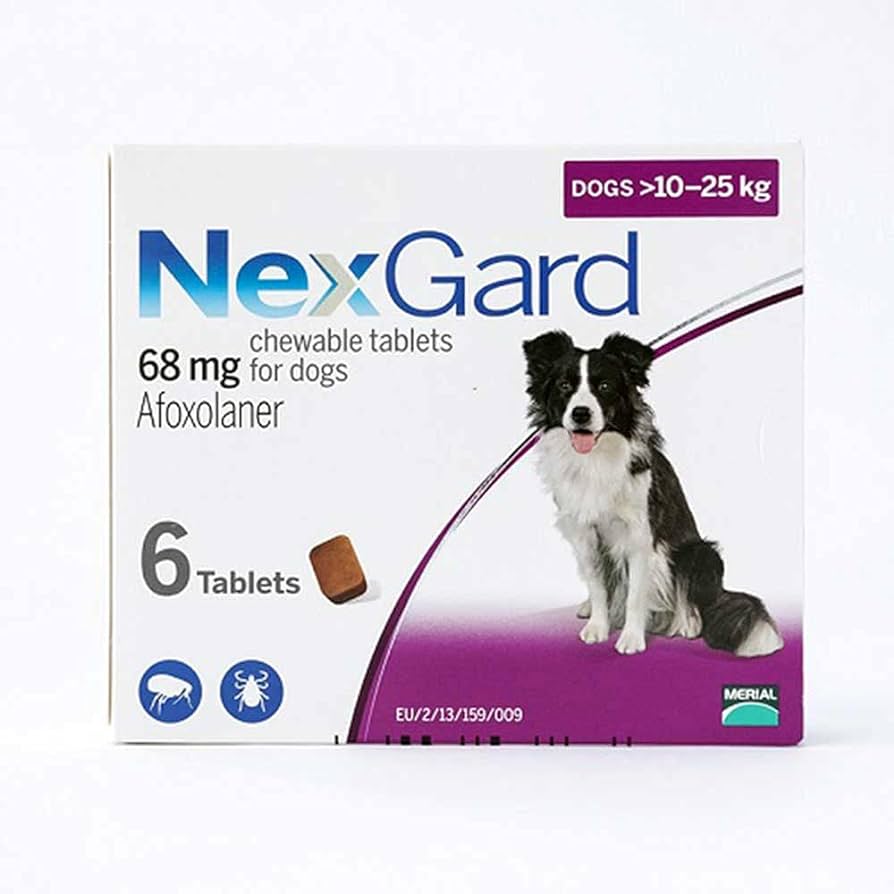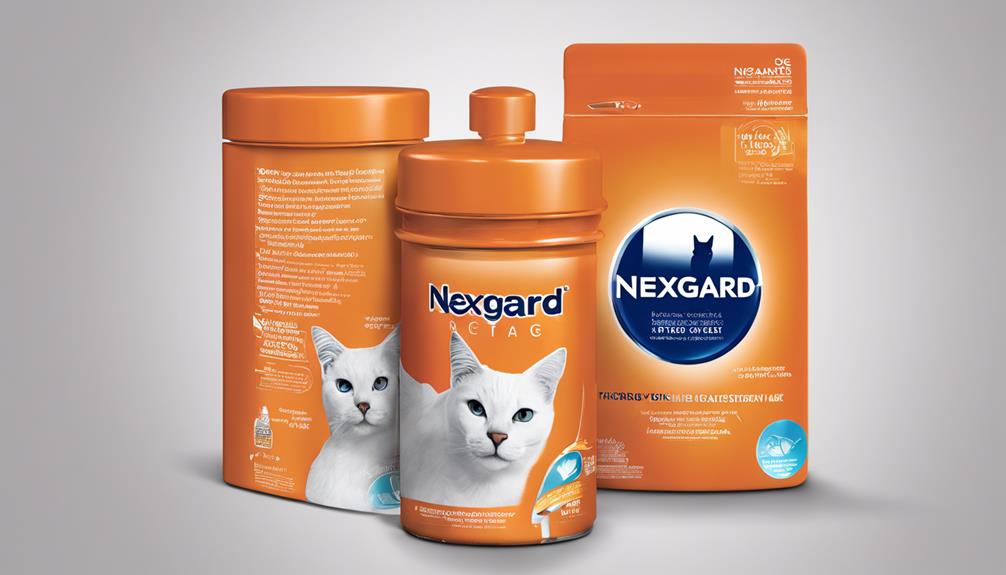Can You Give Heartgard and Nexgard at the Same Time
You can safely give your pet Heartgard and Nexgard together. By combining them, you provide comprehensive protection against parasites. It’s crucial to follow correct dosages based on your pet’s weight. While rare, mild side effects like vomiting and diarrhea can occur. Always inform your vet about all medications your pet is taking. Remember, your vet can provide personalized advice based on your pet’s specific health needs. It’s essential to address concerns about potential drug interactions and side effects. Trust your vet’s recommendations for the safest and most effective administration. Find out more about ensuring your pet’s well-being.
Key Takeaways
- Generally safe to give Heartgard and Nexgard concurrently.
- Heartgard prevents heartworms, Nexgard targets fleas and ticks.
- Consult vet for personalized advice on dual administration.
- Consider pet’s health needs and potential drug interactions.
- Ensure correct dosages based on pet’s weight.
Safety of Concurrent Heartgard and Nexgard Use
When giving Heartgard and Nexgard at the same time, ensure you’re aware of the safety implications of concurrent use. Both Heartgard and Nexgard are popular medications for pets, but combining them requires caution. Heartgard is a monthly heartworm preventative, while Nexgard is a monthly flea and tick control treatment. While it’s generally safe to give both medications together, some pets may experience mild side effects such as vomiting, diarrhea, or lethargy. Monitoring your pet after administering the medications is crucial to ensure they tolerate the combination well.
Although rare, some pets may have an adverse reaction to the simultaneous administration of Heartgard and Nexgard. Signs of an adverse reaction can include drooling, tremors, or difficulty walking. If you notice any concerning symptoms, contact your veterinarian immediately. Additionally, ensure you’re giving the correct dosage of each medication based on your pet’s weight to prevent overdosing. By staying vigilant and informed, you can safely give Heartgard and Nexgard together to protect your furry friend from heartworms, fleas, and ticks.
Potential Drug Interactions to Consider
Consider potential drug interactions when administering Heartgard and Nexgard simultaneously to your pet to ensure their safety and well-being. While Heartgard primarily targets heartworms and intestinal parasites, Nexgard focuses on killing fleas and ticks. When combined, these medications provide broad-spectrum protection. However, it’s essential to be cautious about potential interactions with other drugs your pet may be taking.
For example, if your pet is on medications that affect the liver or the central nervous system, combining them with Heartgard and Nexgard could lead to adverse effects. Medications like anticonvulsants, corticosteroids, or certain antibiotics may interact with Heartgard or Nexgard, affecting their efficacy or causing harm to your pet. Always inform your veterinarian about any medications your pet is currently taking to prevent harmful interactions.
To ensure your pet’s safety, consult with your veterinarian before giving Heartgard and Nexgard together, especially if your pet is on other medications. Your vet can provide guidance on potential drug interactions and help you create a safe and effective treatment plan for your beloved companion.
Benefits of Combining Heartgard and Nexgard
To maximize protection for your pet against a wide range of parasites, combining Heartgard and Nexgard offers comprehensive coverage.
Heartgard, a monthly chewable tablet, targets heartworm larvae and prevents heartworm disease. It also controls and treats roundworms and hookworms, common intestinal parasites in pets.
Nexgard, an oral flea and tick preventative, kills adult fleas before they can lay eggs, effectively breaking the flea life cycle. Additionally, Nexgard protects against ticks, reducing the risk of tick-borne diseases such as Lyme disease and anaplasmosis.
Veterinarian Recommendations for Dual Administration
For optimal results, consult your veterinarian regarding the simultaneous administration of Heartgard and Nexgard for your pet’s parasite protection. Your veterinarian is the best person to provide personalized recommendations based on your pet’s specific health needs and potential interactions between the two medications. They can consider your pet’s age, weight, breed, medical history, and any preexisting conditions to determine if giving both medications together is safe and effective.
Veterinarians have the expertise to assess whether combining Heartgard and Nexgard is suitable for your pet. They can discuss the benefits of using both products concurrently, such as comprehensive protection against heartworms, fleas, and ticks. Your veterinarian can also address any concerns you may have about potential side effects or complications that could arise from dual administration.
Common Concerns Addressed: Heartgard and Nexgard Compatibility
When evaluating the compatibility of Heartgard and Nexgard, prioritize clarity and precision to address common concerns efficiently.
One of the main worries pet owners often have is whether these two medications can be safely given together. The good news is that Heartgard and Nexgard are generally considered safe to administer concurrently.
Heartgard focuses on heartworm prevention, while Nexgard targets fleas and ticks. Since they work in different ways within your pet’s system, there’s typically no issue with giving them at the same time.
However, it’s always best to consult with your veterinarian before starting any new medication regimen for your furry friend. They can provide personalized advice based on your pet’s specific health needs and potential interactions with other medications.
Frequently Asked Questions
Can Heartgard and Nexgard Be Safely Given to Pregnant or Nursing Dogs?
During pregnancy or nursing, consult your vet before giving Heartgard and Nexgard to your dog. Safety concerns exist, so professional guidance is essential. Always prioritize your dog’s well-being and follow your veterinarian’s recommendations closely.
Are There Any Age Restrictions for Giving Heartgard and Nexgard Together?
Yes, there are age restrictions for giving Heartgard and Nexgard together. It is important to consult your veterinarian for guidance based on your dog’s specific age and health condition before administering these medications concurrently.
Can Heartgard and Nexgard Be Given to Dogs With Pre-Existing Health Conditions?
Yes, you can give Heartgard and Nexgard to dogs with pre-existing health conditions. However, it’s crucial to consult your vet first. They can provide personalized advice based on your dog’s specific health needs to ensure their well-being.
Is It Safe to Give Heartgard and Nexgard to Dogs Who Are on Other Medications?
Giving Heartgard and Nexgard together to your dog when they are already on other medications can potentially interact negatively. Consult your veterinarian to ensure the safety and effectiveness of combining these medications for your pet’s well-being.
Are There Any Known Side Effects or Adverse Reactions When Combining Heartgard and Nexgard?
When combining Heartgard and Nexgard, be aware of potential side effects such as vomiting, diarrhea, or lethargy. Monitor your pet closely for any adverse reactions and consult your veterinarian if you notice any concerning symptoms.
Conclusion
In conclusion, it’s generally safe to give Heartgard and Nexgard at the same time. However, it’s always recommended to consult with your veterinarian before administering any medications to your pet.
They can provide personalized advice based on your pet’s specific needs and health history. By following their guidance, you can ensure the safety and effectiveness of your pet’s parasite prevention regimen.








